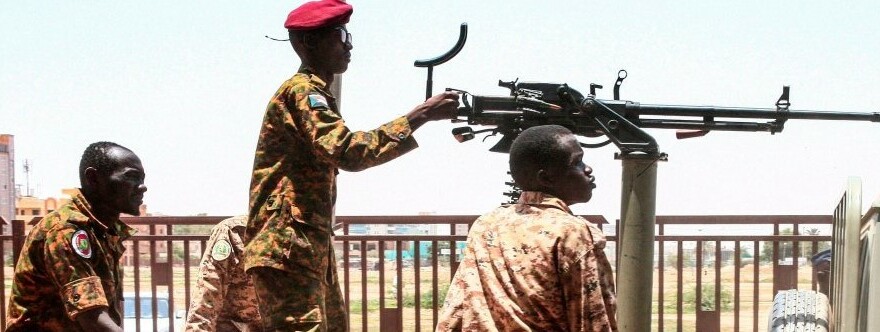Sudan’s army and the Rapid Support Forces have agreed to facilitate aid access and enact trust-building measures during talks in Saudi Arabia, mediators said.
“The co-facilitators regret that the parties were unable to agree on cease-fire implementation agreements during this first round,” a joint statement by Saudi Arabia, the US and the Intergovernmental Authority on Development, a bloc of East African nations, said Tuesday.
The statement, carried by the Saudi state news agency (SPA), comes on the heels of a new round of talks between the warring parties that restarted in the Saudi Arabian Red Sea city of Jeddah last month.
The mediators expressed their regret that the two parties had not reached an agreement for a ceasefire, the statement said, and urged them “to put the interests of the Sudanese people first, put down their weapons, and engage in negotiations to end this conflict”.
Humanitarian coordinator reacts
The UN Humanitarian Coordinator in Sudan Clementine Nkweta-Salami welcomed the commitments adopted in Jeddah by the parties to the conflict to facilitate humanitarian access, saying it marks a moment of truth for the country.
“The promises made by the Sudanese Armed Forces (SAF) and Rapid Support Forces (RSF) – to protect civilians and provide unimpeded humanitarian access – are promises that must be kept,” she said.
“I thank the Kingdom of Saudi Arabia, the United States, and the Intergovernmental Authority on Development – representing IGAD and the African Union – for their role in facilitating these critical negotiations,” she added.
The UN humanitarian coordinator pointed out that she welcomes, in particular, the agreement to establish a Humanitarian Forum for Sudan led by the UN Office for the Coordination of Humanitarian Affairs representing the humanitarian community and with the participation of the parties to the conflict.
The tangible commitments agreed by the SAF and RSF today must now be followed by immediate and tangible actions. It is critical that the obstacles – bureaucratic and otherwise – that keep us from delivering life-saving relief at speed and at scale are cleared away once and for all,” the humanitarian coordinator said.
“We must have reliable guarantees from all parties to ensure that relief items, humanitarian workers and assets can move safely across conflict lines. We simply cannot reach Khartoum, Darfur, the Kordofans and other war-torn areas of the country without these assurances,” she stressed.
Fighting erupted in April between the forces of army chief Abdel Fattah al-Burhan and his former deputy Mohamed Hamdan Daglo, who commands the paramilitary Rapid Support Forces (RSF).
The two side have previously agreed to and then promptly violated ceasefires and commitments to facilitating aid and protecting civilians.
After almost seven months of war, half of Sudan’s population – nearly 25 million people – need humanitarian assistance, according to the United Nations.
More than 10,000 people have been killed in the conflict so far, according to a conservative estimate by the Armed Conflict Location & Event Data Project.




